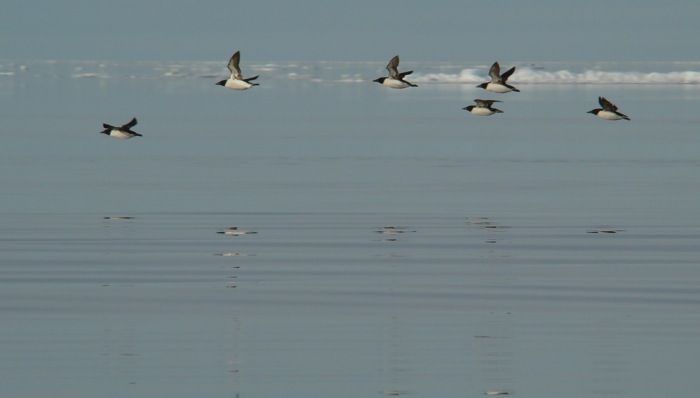
Physical and biological effects of global climate change are most pronounced in Polar regions where warming waters and reductions in sea ice thickness and extent are influencing biological systems. Our International Polar Year (IPY) project uses seabirds to detect climate-induced ecosystem changes in eastern Canadian High and Low Arctic regions that are linked through the Labrador Current in the North Atlantic (Fig 1). Seabirds sample the marine environment over multiple spatial and temporal scales and their movements, diets and reproductive performance are sensitive indicators of climate-induced changes in marine foodwebs. Our multi-species research integrates established and novel techniques to examine the year-round movement ecology, diets and breeding success of seabirds.

Application: Climate change is influencing Arctic marine resources that are vital to northern peoples and communities and will affect resource use and traditional harvesting. These changes will present challenges and opportunities for local residents and all Canadians. Information on ecosystem change from seabirds is useful for future planning and adaptation.
William A. Montevecchi, Anthony J. Gaston, Gail K. Davoren, Joseph Allen, Chantelle Burke, Kyle Elliott, David A. Fifield, Stefan Garthe, Grant H. Gilchrist, April Hedd, Keith Hobson, Mark L. Mallory, Laura McFarlane-Tranquilla, Richard Phillips, Jennifer Provencher, Jean-François Rail, Paul M. Regular, Paul Smith, Gregory J. Robertson, Kerry Woo







































